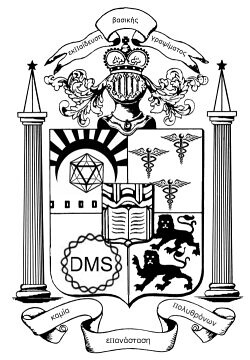The second survey I took recently (see below for Part I) was a course evaluation of the anatomy class whose final is this Friday. Three questions stand out to me:
Please indicate the degree to which you agree or disagree with the following statements from 1 (Strongly Disagree) to 5 (Strongly Agree).*
6. Encouraged critical, independent thinking.
7. Stimulated and facilitated questions and discussions.
8. Motivated independent study in the topic area.
When I got to this point, I said, "Wait, these are course objectives?" It's objectively true that the course didn't encourage these things. It's objectively true that when a controversy came up, our professor would say things like, "We can argue all day about this - Moore says 5 muscles, Clemente says 7, Grant has 4, Grey has 10, Hollinshead says something else entirely. Ultimately, when you think about abducting your arm, it's really only two muscles - supraspinatus and deltoid."** So thinking, discussing, and searching for alternate explanations were never on the plate.
Could this be some kind of crazy form borrowed from the English department because the School of Medicine didn't want to write their own evaluation form? Nope - the forms are different, and the school of medicine one even has our little crest in the corner.
So then, what's going on? I'm not sure, but my next question is - are these things actually course objectives, and should they be? Turning back to Volume I, Page 1 of the syllabus, the course objectives seem to be to:
1. Provide a course of study that will not only be inspiring but efficient and economical.
2. Integrate basic anatomical facts and concepts into a framework of clinical thinking.
3. Be a positive and defining experience - interesting, challenging, and enjoyable.*
No mention of discussion, critical thinking, or independant study. This exonerates the course from false advertising, but the inevitable followup is to wonder whether these course objectives (to the extent that they were fulfilled) form the basis of a viable course. My answer is yes. My impression in this course, as in many science courses, is that the principles of efficiency and economy require us to ignore many controversies, nits, and details, simply because they would distract us from our course of study. Given the choice between covering the material we have, and discussing what makes a "fact" a fact, a 'fact,' a "scientific fact," a 'scientific fact' or what have you, actually talking about something is far preferrable. I can quibble with the best of them, and I don't need more practice.
What about inspiration, acting as a defining experience? Surely I don't go for that crap? Actually, I do. The problem with this blog is that I'm normally only motivated to write when I'm pissed off and partisan, but you can see the chink in my thinking in Survey Part I where I said, "That's why I'm putting up with you people in the first place." There's a big distance between writing an essay about how I want to help people and actually doing it. Somewhere in there is the moment when I stop thinking "How cool is it to be here"" and start thinking "How can I use this to improve the world?" There is the moment when I decide that saving lives is more important than collecting data. There is the moment that I realize that someone's life will be in my hands, the moment it actually is, and moment what I let it slip. One of the outcomes of my interview odessy is that I realized medical training changes you, and I decided that this change is part of my mission in life.
So it's been amazing, nerve-wracking, boring, fascinating, long, grueling, vital, and unique. That's more than enough for any course. Best course I ever had? I'm not sure. Dog Lab was probably the most life changing, Molecular Bio and Physiology are also up there. Let's say Top 7 at least. And despite my last post, just because we don't haggle about the embryological origin of the Sinoatrial Node doesn't mean I'm a soulless technocrat, or that I've lost my ability to dissent. It means I've learned the ability to hold my fire.
* As always edited for brevity and clarity.
** Made up, but representative. The names are names of common anatomy texts. If you really really want to read them, go search for them on Amazon yourself.
P.S. What I can't figure out is why SOM has these objectives on the evaluation sheet if they're not actually objectives for the classes.
Subscribe to:
Post Comments (Atom)

No comments:
Post a Comment